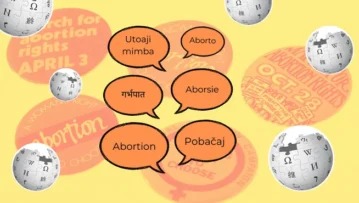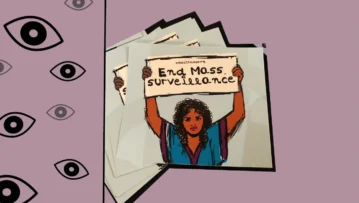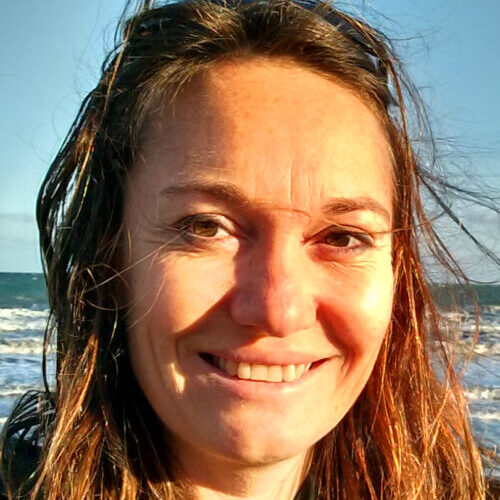From campaigning to making women visible on Wikipedia, to publishing podcasts on oral knowledge: 2019 was a year to explore new ways for collaborating and communicating, as well as different formats to engage in conversations with our communities. We are so happy with each of the steps taken, large and small, that we want to share with you some of the milestones of this lovely journey.

A more diverse internet
In March, our yearly #VisibleWikiWomen campaign began on the occasion of the International Women’s Day, under the coordination of the fabulous Mariana Fossatti. Thanks to the wonderful actions of our 26 partners, more than 3700 photographs of women were added to Wikimedia Commons for use on Wikipedia – and many more were uploaded throughout the year! As an addition to this year’s campaign, we started “Celebrating the colors of #VisibleWikiWomen”, an extra push to celebrate and increase the images of influential black, brown and indigenous women that were being brought to Wikipedia. We also wrote several blog posts, in collaboration with our partners such as Association for Women’s Rights in Development and The Black Lunch Table. In addition, we designed a bunch of new postcards for our collection, improved and updated the resources created last year, and Mariana shared the experience of the campaign at the Creative Commons Global Summit and at Wikimedia Argentina’s Conference on Human Rights on Digital Environments. Such a robust and rewarding campaign!
A multilingual internet
We held our annual Decolonizing the Internet convening, this time focused on building an agenda for action to Decolonize the Internet’s Languages. We convened activists, linguists, archivists, researchers, techies, Wikimedians and more who brought a wide array of backgrounds and experiences to the table. We are still processing the wonderful contributions and reflections that emerged from this gathering and preparing a report that we will share in 2020. Claudia Pozo, our Communications Lead, also participated in the Latin American Festival of Indigenous Languages on the Internet in Guatemala, where the issue of indigenous languages on the internet was widely addressed from the perspectives and experiences framed in the Latin American region and context.
We have been excited to embark on a research project with the Center for Internet and Society and the Oxford Internet Institute to prepare a State of the Internet’s Languages report to be published in 2020. We launched a very successful call for contributions in search of stories about marginalized communities’ experiences using their languages on the internet. This will be an integral part of the report, together with quantitative data about today’s challenges and opportunities to diversify languages online.
A multiformat internet
This year we launched our “The Internet We Want” newsletter, a place to share our actions and echo the projects and initiatives of our communities. Also, to bring new forms of oral knowledge that has been missing online, in 2019 we launched our “Whose Voices?” podcast. There we host conversations with community activists in English and Spanish about how can we re-imagine and re-design the internet together. So far we’ve published 7 episodes, and we have many more to share next year!
Finally, our co-directors Adele Vrana, Anasuya Sengupta and Siko Bouterse traveled to events and communities around the world to share our vision, participating in panels and conferences about why centering the knowledge of marginalized communities on the internet is necessary and urgent. We also began exploring our own origins as a decolonizing practice, and one of our favorite talks this year was Siko’s and Adele’s Keynote at the 2019 Creative Commons Global Summit.
Gratitude
We are deeply grateful to all the communities, organizations, allies and friends who worked side by side with us throughout these months!
We are also grateful to our funders Shuttleworth Foundation, Open Society Foundations, Wikimedia Foundation, Global Fund for Women and Peace Development Fund, and to all the individual donors who showed us their endless trust and support in 2019.
Looking ahead to 2020
We’ve been grateful to have 3 years of funding from the Shuttleworth Foundation that has allowed us to accomplish so much since we began. But as this major source of funding comes to an end now, Whose Knowledge? is urgently looking for new funders to support the work we do.
Whose Knowledge? has remaining funds that will allow us to operate for only the first 6 months of 2020. Our bank account will be empty in July 2020.
If you would like to continue seeing marginalized communities being centered online, please consider making a donation to support Whose Knowledge’s programs and operations.
Will you support us for 2020?







